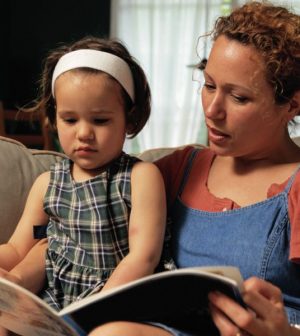- Could Your Grocery Store Meat Be Causing Recurring UTIs?
- Are You Making This Expensive Thermostat Error This Winter?
- Recognizing the Signs of Hypothyroidism
- 10 Strategies to Overcome Insomnia
- Could Artificial Sweeteners Be Aging the Brain Faster?
- Techniques for Soothing Your Nervous System
- Does the Water in Your House Smell Funny? Here’s Why
- Can a Daily Dose of Apple Cider Vinegar Actually Aid Weight Loss?
- 6 Health Beverages That Can Actually Spike Your Blood Sugar
- Treatment Options for Social Anxiety Disorder
3 Parenting Essentials to Safeguard Kids’ Well-Being

As a parent, you want to do everything right to nurture your child. Besides serving healthy food and encouraging daily exercise, three other lifestyle habits can have a huge impact on your child’s mental and physical well-being and development.
In an article in JAMA Pediatrics, Dr. Dimitri Christakis, of the Seattle Children’s Research Institute, said studies show how a child’s early environment affects behavior and development. He and his colleagues developed strategies to help parents make the most of all aspects of their children’s development. These are some of their best tips.
First, read to your child regularly, but don’t stop there. Use reading to help engage your child’s mind, curiosity and inquisitiveness. Follow every book you read with a conversation. Encourage your child to ask age-appropriate questions about what you just read. Keep the conversation open-ended: Let one question lead to another.
Next, limit screen time. Resist introducing TV and other video gadgets before 18 to 24 months of age and then cap at one hour a day. Though computer games and videos seem to quiet kids and parents often use them as a babysitter, they can negatively affect both a child’s cognitive development and attention span.
Finally, make sure your child gets enough sleep. Without it, he or she is at greater risk for many learning difficulties and emotional problems.
None of these habits is hard to practice, though it may take more effort to change current behaviors. Talk to your pediatrician if you need guidance.
More information
The organization Reach Out and Read has an online resource center with ideas and advice on reading to kids.
Source: HealthDay
Copyright © 2026 HealthDay. All rights reserved.










